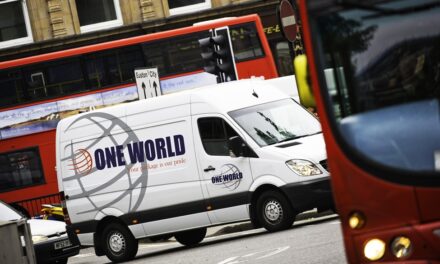
Buzz Words in e-commerce
Buzz words, to name a few globally in e-commerce, are: Growth, expansion, export, cross border sales, consumer experience, cost effective deliveries, visibility of parcels, portfolio of delivery channels, clear returns policy, customs clearance… The European Union as a market place is a very attractive region to trade and sell into. International Ecommerce Companies around the world outside the EU that are looking to expand their online business into Europe would either open a branch operation in the EU which can be an expensive option without any knowledge of the EU sales or will enter the EU remotely by shipping directly to the consumers from their Countries. The latter option is mostly opted for initially by such Companies.
In such situations what factors determine the choice of Country for Entry into EU? What will these Companies look for within a Country that will enable them to select this Country as an Entry point and in turn select Suppliers in that Country that will assist them in delivering their cross border strategy into the EU? Some factors to consider are:
• Language
• Environment in the Country.
• Guidance, Knowledge base and Compliance
• Infrastructure
• Customs Clearance
• Approach, attitude and flexibility to change
• Variety and maturity of distribution channels available.
Language
English is the business language of the World and ease of communication in business is vital for any relationship to work and thrive. Clear communication and the ability to understand each other in cross border relations is vital for effective execution of instructions, goals and strategies. The National language of the UK being English gives the UK the edge when it comes to communication.
Environment in the Country
The UK has many initiatives both private and public which encourages companies to innovate and gear themselves up for Exports. There is a huge drive for Export and the aim is to get UK companies the necessary help, training, guidance, support, mentorship, funding and skills to enable them to Export. This differentiates UK companies in the EU and makes them better prepared to handle these potential clients.
Guidance, Knowledge base and Compliance
The UK being a major services exporter has a tremendous skill base and entities both private and public that makes information readily available to access and presented in a format that is easy to understand. These entities can assist in guiding Companies with various requirements on doing business in the EU and what they need to do to ensure compliance with various EU requirements. This is will bring comfort to the Company looking to enter the EU through Ecommerce.
Two Examples:
1] If a company was in the Electrical and Electronic segment for example, information on WEEE (Waste Electrical & Electronic Equipment) compliance would be essential.
2] All distant sellers through Ecommerce into the EU will need to comply with the VAT laws and requirements. A fiscal representation is required and the UK has a wealth of expertise to guide these companies.
Infrastructure
The UK provides an infrastructure that supports the growth in ecommerce. From a fantastic road network, rail network, Airports, Ports and inbound Air Cargo and Express handling facilities.
Advantages like having a dedicated Courier facility at London Heathrow enables Express shipments to be potentially cleared through customs within ninety minutes of arrival and Air Freight normally on the day of arrival. Efficient handling of inbound material at the Airports and the ease in which one can go into and out of the airports through the road networks adds to the efficiency and speed in which shipments can be processed. Faster delivery adds to the consumers experience and satisfaction.
Customs Clearance
The UK has an extremely efficient customs clearance process and customs work hand in hand with private operators. Customs approve private companies after a consultation and due diligence and sign a Memorandum of Understanding (MOU) with Private companies which assist in this efficient customs clearance process. The MOU sets out the do’s and don’ts that customs require the private company to follow and the record keeping that must be maintained in what format. This close working relationship between private operator and customs governed by the rules set out in the MOU assists the UK in being the first choice HUB for Europe. All good will still go through the normal customs inspection and clearance process as with all shipments entering the UK but companies with a MOU will be allowed to clear goods under certain Customs Procedure Codes (CPC).
Approach, attitude and flexibility to change
One of the Keys to success for cross border ecommerce would be to have an efficient customs clearance process and cost effective deliveries that provide visibility of the parcels. UK Companies have a fantastic attitude towards this rapid change in the way consumers are shopping now. Delivery companies have developed products for cost effective delivery using lifestyle couriers to developing solutions which gives the consumer real time tracking and estimated delivery times perfected to a one hour window.
Small retail premises businesses have become collections centres and returns centres. Collections boxes are being accepted as a convenient way of collecting ones shopping at a time that suits the consumer.
Customs are receptive to ideas from the industry and if a policy does not exist for a situation that could assist Ecommerce and the trade these challenges get referred to policy for discussion with a view of finding a solution.
The above examples are a few that shows the approach that the public sector and private sector has in the UK and this delivers a solid foundation that will adapt to change.
Variety and maturity of distribution channels available
The UK is an extremely mature distribution market. Besides the major integrators of the world have a strong presence, the UK also boosts of having a very solid independent distribution network of geographical specialist private companies. Many other postal operators in the world have seen this opportunity and have established their Extraterritorial Offices of Exchange (ETOE) in the UK as well. This brings a wide spectrum of choice and keeps the UK very competitive with many alternative delivery solutions being made available.
The UK is also leading the way in developing return solutions from the EU and this will also be another factor why international companies looking to work in the EU will look at the UK.
Some of the points covered above are vital in decisions when considering a Hub for entry into the EU and this article aims to highlight the strengths the UK and UK companies have and this is why the title reads “Why the UK?“
By Atul Bhakta, Managing
Director, One World Express Inc. Ltd
Atul Bhakta will be speaking at this years World Mail & Express Americas Conference which will be taking place in Miami from 2-4 February to find out more visit www.triangle.eu.com/Americas













interesting and quite true. in fact it seems that all non-UK residents will either have to transfer to the UK, or drop the idea of buying abroad.